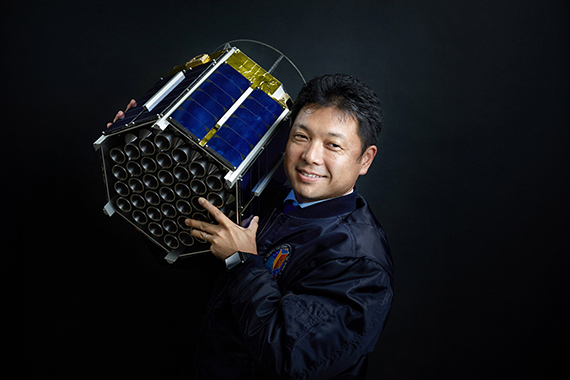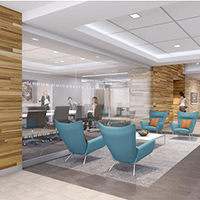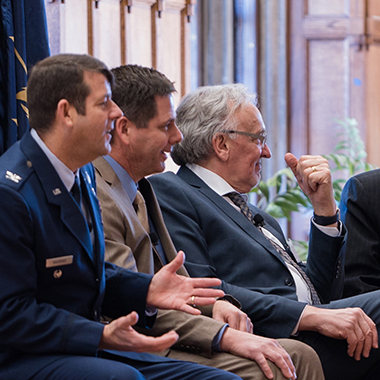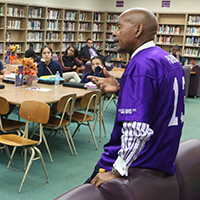 Astroscale founder Nobu Okada displays a model of a satellite designed to catch and remove space debris from Low Earth Orbit. (Photo by Ko Sasaki courtesy of The New York Times)
Astroscale founder Nobu Okada displays a model of a satellite designed to catch and remove space debris from Low Earth Orbit. (Photo by Ko Sasaki courtesy of The New York Times)
Space Sweeper
Nobu Okada rises to the challenge
At the age of 15, Nobu Okada flew from his native Japan to join the United States Space Camp at the U.S. Space and Rocket Center in Huntsville, Alabama. There, he met Japan’s first astronaut, Mamoru Mori, who handed Okada a handwritten note with a simple message: “The challenge of space is waiting for you.”
That ignited a lifelong passion for space that eventually brought Okada to Purdue University, the “Cradle of Astronauts” and alma mater of his boyhood hero, Neil Armstrong, where Okada earned an MBA in 2001 from the Krannert School.
There were several stops along the way, however, beginning at the University of Tokyo with undergraduate and graduate studies in genetics. He then leveraged his unique skillset and MBA into a finance career, rocketing to new levels with jobs at several leading consulting firms and financial services companies, including McKinsey & Co. and Bain Capital.
In 2009, Okada caught the entrepreneurial spirit and founded a software company in Singapore, but after several years found himself in a “mid-career” crisis.
“The challenge of space was still waiting for me,” he says, “but it was not what I anticipated. Today, space is full of rocket bodies, old satellites and other fragments of debris that are flying around the Earth at eight kilometers per second – that’s almost 10 times faster than a bullet.”
Okada quickly became passionate about that the issue, but first had to overcome his status as an outsider. “I attended various space conferences as a member of the general audience to learn about the latest developments and meet the most powerful people in the industry,” he says. “But the national space agencies were dragging their feet because no one wanted to pay for it.”
Beyond the inherent danger to manned spacecraft and astronauts, Okada says the biggest concern is collisions between new satellites and the debris from old satellites, which lead to a chain reaction of cascading, self-sustaining collisions of space debris in Low Earth Orit (LEO) known as the Kessler syndrome.
Okada says space debris not only affects space agencies like NASA, but also our daily lives, which are dependent on satellite technologies. “Without satellites, we could not forecast or prepare for weather events like hurricanes, typhoons or tsunamis,” he says. “We could not use GPS to navigate planes, ships or automobiles. Logistics would fail. Stock and exchange markets around the world would become chaotic.”
Merging his technical background and startup experience, Okada tackled the growing problem in 2013 by founding Astroscale. The Singapore-based satellite services company is on a mission to contribute to the sustainable use of the space environment by developing scalable and innovative on-orbit technologies that safely remove the most threatening debris in orbit.






